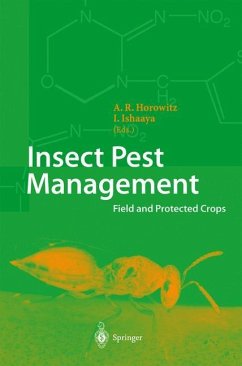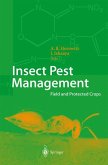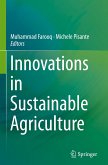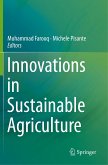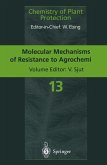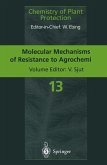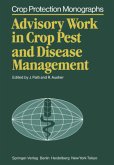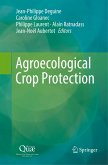This book deals with new approaches to insect pest management in field and protected crops using ecologically sound and innovative techniques.
It starts with an overview on general topics in pest management, i.e., the efficacy and selectivity of new biorational insecticides such as insect growth regulators, avermectins, the neonicotinoid insecticides, and the ecology of insect pests and relevance to pest management along with new insights into cultural and physical control in greenhouses and field crops. Other chapters are dedicated to transgenic crops, their usefulness and the problems which have emerged during their implementation. Advances in pest management of important crops such as cotton - in developed and less developed countries - corn, oilseed rape and various vegetables are dealt with in detail.
The authors of the various chapters have a wealth of experience and are considered world leaders specializing in various aspects of pest management programs.
In the middle of the twentieth century, new insecticides were being con stantly developed and it seemed that pesticides would be able to control insect pests indefinitely. In fact, from the 1950s to the 1980s, pest control was mostly based on conventional insecticides such as organochlorines, organo phosphates, carbamates and pyrethroids. However, the severe adverse effects of pesticides on the environment, the resistance problems reaching crisis pro portions and public protests led to stricter regulations and legislation aimed at reducing the use of pesticides. Consequently, other ways to manage insects have been suggested, such as the use of biorational pesticides with minimal adverse effects on the environment, biological control, host-plant resistance to pests, mating disruption with pheromones, and cultural and physical con trol. The ideas behind "integrated control" were published at the end of the 1950s by groups of entomologists from California, and served as a basis for initiating integrated pest management (IPM) in the 1970s. Since the 1980s, insecticide resistant management (IRM) programs have been introduced as a result of increasing problems of resistance to pesticides. IPM programs were strengthened as the awareness of environmental fragility intensified. Since the late 1990s, advanced approaches to manage insect pests have been devel oped. One of the novel and exciting innovations in the study of plant resis tance to pests has been the introduction of genetically engineered or trans genic plants.
It starts with an overview on general topics in pest management, i.e., the efficacy and selectivity of new biorational insecticides such as insect growth regulators, avermectins, the neonicotinoid insecticides, and the ecology of insect pests and relevance to pest management along with new insights into cultural and physical control in greenhouses and field crops. Other chapters are dedicated to transgenic crops, their usefulness and the problems which have emerged during their implementation. Advances in pest management of important crops such as cotton - in developed and less developed countries - corn, oilseed rape and various vegetables are dealt with in detail.
The authors of the various chapters have a wealth of experience and are considered world leaders specializing in various aspects of pest management programs.
In the middle of the twentieth century, new insecticides were being con stantly developed and it seemed that pesticides would be able to control insect pests indefinitely. In fact, from the 1950s to the 1980s, pest control was mostly based on conventional insecticides such as organochlorines, organo phosphates, carbamates and pyrethroids. However, the severe adverse effects of pesticides on the environment, the resistance problems reaching crisis pro portions and public protests led to stricter regulations and legislation aimed at reducing the use of pesticides. Consequently, other ways to manage insects have been suggested, such as the use of biorational pesticides with minimal adverse effects on the environment, biological control, host-plant resistance to pests, mating disruption with pheromones, and cultural and physical con trol. The ideas behind "integrated control" were published at the end of the 1950s by groups of entomologists from California, and served as a basis for initiating integrated pest management (IPM) in the 1970s. Since the 1980s, insecticide resistant management (IRM) programs have been introduced as a result of increasing problems of resistance to pesticides. IPM programs were strengthened as the awareness of environmental fragility intensified. Since the late 1990s, advanced approaches to manage insect pests have been devel oped. One of the novel and exciting innovations in the study of plant resis tance to pests has been the introduction of genetically engineered or trans genic plants.

